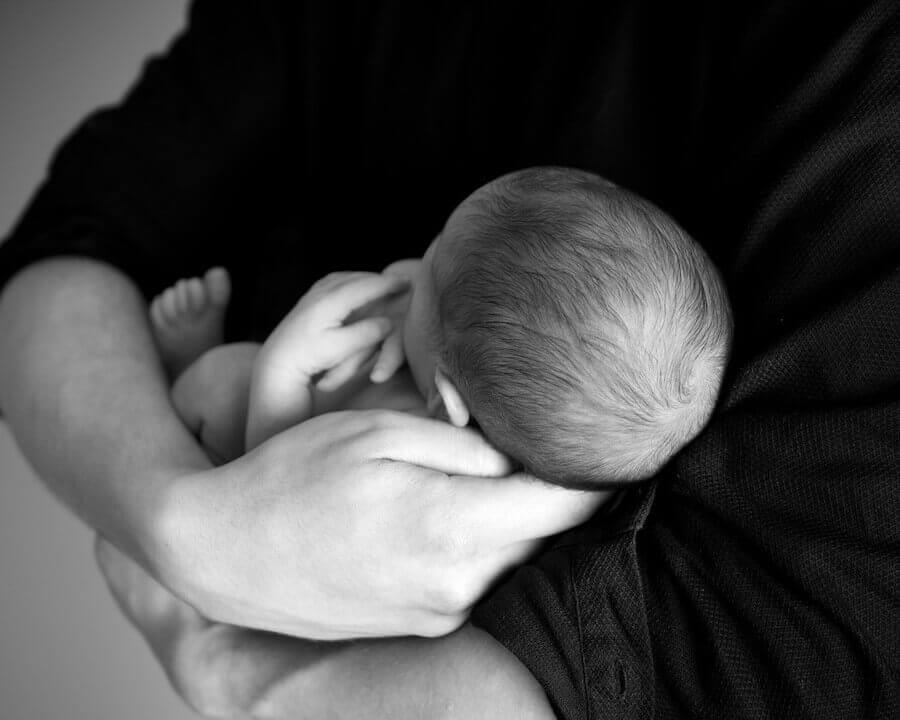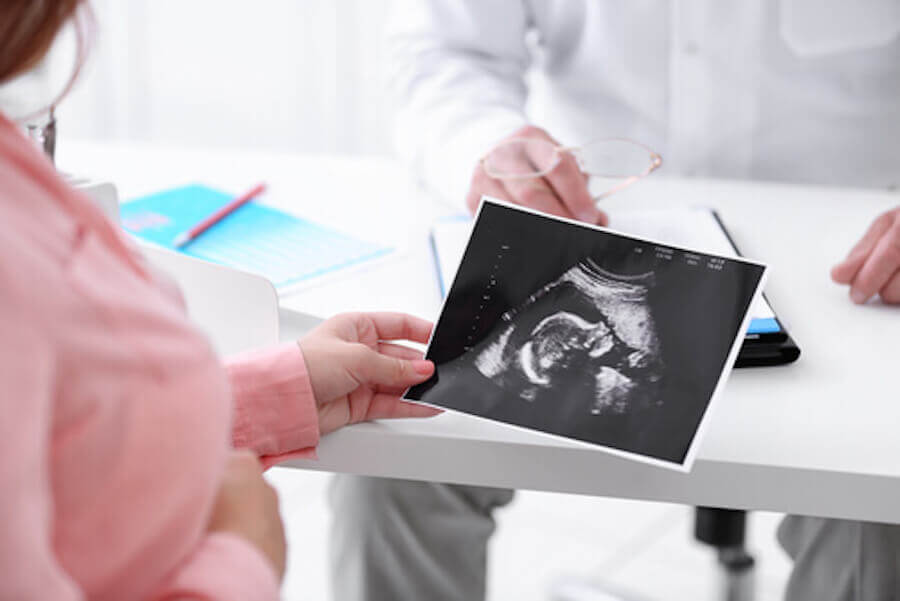Your Baby's Weight During Pregnancy

Knowing their baby’s weight during pregnancy is one of the main things parents want to know when they go to the doctor and have an ultrasound.
From that point on, they’re full of questions. In fact, most specialists start to give an approximate weight after 3 months.
Parameters for Calculating Your Baby’s Weight During Pregnancy
- Cephalic circumference
- Femur length
- Abdominal circumference
With these three measurements, easily obtained during the ultrasound, the doctor does a correlation to find an estimated weight that is very accurate. However, there is a margin of error of about 10%.

The Dexeus Rule
One of the formulas doctors use to calculate a baby’s weight during pregnancy is called the Dexeus rule. It’s named after the Catalan gynecologist who designed it: Santiago Dexeus.
The Dexeus rule indicates that the fetus’ weight doubles every lunar month between the third and sixth month. In the remaining three months, the weight increases by 700 grams each month.
This rule can be summarized in a table that starts at three months with a 125 gram fetus, as shown here:
- 3 months: 125 g, 4 month: 125 x 2 = 250 g
- 5 months: 250 x 2 = 500 g
- 6 months: 500 x 2 = 1000 g
- 7 months 1000 + 700 = 1700 g
- 8 months 1700 + 700 = 2400 g
- 9 months: 2400 + 700 = 3100 g
The table is a way to orient specialists so they can monitor your baby’s development. However, the final weight will depend on various factors associated with growth.
What are they? Genetic factors, nutrition and eating habits of the mother, and her mood during pregnancy.
Every Baby Is Unique
Just as is true after birth, each baby develops differently in the womb. Although they can be compared to established averages, there is always a certain margin of difference.
Only a doctor can tell you whether your baby’s development is healthy. This is the purpose of continual ultrasounds throughout your pregnancy.
Of course your baby’s weight during pregnancy is very important because it’s associated with generally healthy development.
It’s also important to have an optimal weight for delivery, because of the temperature change at birth. This change can have a greater or lesser effect on the child depending on whether he or she has an appropriate amount of body fat.
Finally, the baby needs to transition form getting nutrients directly through the umbilical cord to nursing. To be successful, the baby needs to have adequate sucking ability, which is related to body mass. Greater body mass supports better nursing ability.

Good Nutrition
Ideally, the mother is eating a complete, balanced diet. Eating a balanced diet that provides all the necessary nutrients for the baby’s development is very important. It’s also important to take appropriate supplements during each phase of pregnancy.
Despite the many calendars and tables of fetal development that are out there, remember that only your doctor is qualified to say whether your pregnancy is healthy. So unless your specialist says differently, don’t worry if your baby’s weight is slightly different from the average.
Knowing their baby’s weight during pregnancy is one of the main things parents want to know when they go to the doctor and have an ultrasound.
From that point on, they’re full of questions. In fact, most specialists start to give an approximate weight after 3 months.
Parameters for Calculating Your Baby’s Weight During Pregnancy
- Cephalic circumference
- Femur length
- Abdominal circumference
With these three measurements, easily obtained during the ultrasound, the doctor does a correlation to find an estimated weight that is very accurate. However, there is a margin of error of about 10%.

The Dexeus Rule
One of the formulas doctors use to calculate a baby’s weight during pregnancy is called the Dexeus rule. It’s named after the Catalan gynecologist who designed it: Santiago Dexeus.
The Dexeus rule indicates that the fetus’ weight doubles every lunar month between the third and sixth month. In the remaining three months, the weight increases by 700 grams each month.
This rule can be summarized in a table that starts at three months with a 125 gram fetus, as shown here:
- 3 months: 125 g, 4 month: 125 x 2 = 250 g
- 5 months: 250 x 2 = 500 g
- 6 months: 500 x 2 = 1000 g
- 7 months 1000 + 700 = 1700 g
- 8 months 1700 + 700 = 2400 g
- 9 months: 2400 + 700 = 3100 g
The table is a way to orient specialists so they can monitor your baby’s development. However, the final weight will depend on various factors associated with growth.
What are they? Genetic factors, nutrition and eating habits of the mother, and her mood during pregnancy.
Every Baby Is Unique
Just as is true after birth, each baby develops differently in the womb. Although they can be compared to established averages, there is always a certain margin of difference.
Only a doctor can tell you whether your baby’s development is healthy. This is the purpose of continual ultrasounds throughout your pregnancy.
Of course your baby’s weight during pregnancy is very important because it’s associated with generally healthy development.
It’s also important to have an optimal weight for delivery, because of the temperature change at birth. This change can have a greater or lesser effect on the child depending on whether he or she has an appropriate amount of body fat.
Finally, the baby needs to transition form getting nutrients directly through the umbilical cord to nursing. To be successful, the baby needs to have adequate sucking ability, which is related to body mass. Greater body mass supports better nursing ability.

Good Nutrition
Ideally, the mother is eating a complete, balanced diet. Eating a balanced diet that provides all the necessary nutrients for the baby’s development is very important. It’s also important to take appropriate supplements during each phase of pregnancy.
Despite the many calendars and tables of fetal development that are out there, remember that only your doctor is qualified to say whether your pregnancy is healthy. So unless your specialist says differently, don’t worry if your baby’s weight is slightly different from the average.
This text is provided for informational purposes only and does not replace consultation with a professional. If in doubt, consult your specialist.








